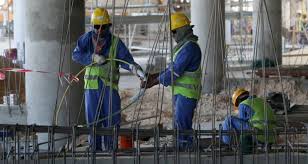By Samindra Kunti in Odense, Denmark
June 28 – The Danish Football Association (DBU) and its president Jesper Moller have remained circumspect over backing a repeated call from Human Rights Watch (HRW) for FIFA and Qatar to compensate the families of workers who died in Qatar in the build-up to the World Cup.
On the sidelines of the Play The Game conference, Moller said that the DBU requires more information before the governing body can consider the call for compensation.
“We need some more information,” said Moller. “It should be pointed out who pays? And where does the money come from? And where does the money go to? Our focus is on a migrant centre. Reports from Qatar show that it could be a very, very good idea to have this migrant centre. From the Danish point of view, we need to work together with the locals.”
His non-committal comments came after HRW repeated its demand that workers in Qatar and their families be compensated for the human rights abuses they have suffered. In May, HRW and a coalition of rights groups issued a demand to establish a comprehensive remediation programme.
“FIFA needs to take urgent action to live up to its own human rights commitments & to make amends to workers who have paid the ultimate price for FIFA’s original failure to do human rights due diligence,” said HRW’s Minky Worden, repeating the organisation’s call for $440 million compensation package for workers.
FIFA, organisers and the federations of the 32 finalists who will play at the World Cup in Qatar later this year have largely remained silent on the demand to offer financial compensation to the workers.
At the recent UEFA Congress in Vienna, Infantino spoke of ‘compensation’ in his address, but FIFA later clarified that Infantino referred to securing the proper payment of salaries for workers.
World Cup organisers Qatar have been under intense scrutiny over their human rights records and widespread labour abuses ever since FIFA awarded the hosting rights to the Gulf nation in 2010.
HRW have reached out to the 32 finalists in ongoing talks and consultations about the hosts’ human rights record. Some federations, including US Soccer, The FA and the DFB, have engaged. The CBF haven’t yet.
“The lessons from Qatar’s World Cup should be that workers do not need to die to deliver any mega sporting event and that a human rights framework is needed to protect everyone touched by football’s flagship event,” said Worden.
Contact the writer of this story at moc.l1745647751labto1745647751ofdlr1745647751owedi1745647751sni@i1745647751tnuk.1745647751ardni1745647751mas1745647751

